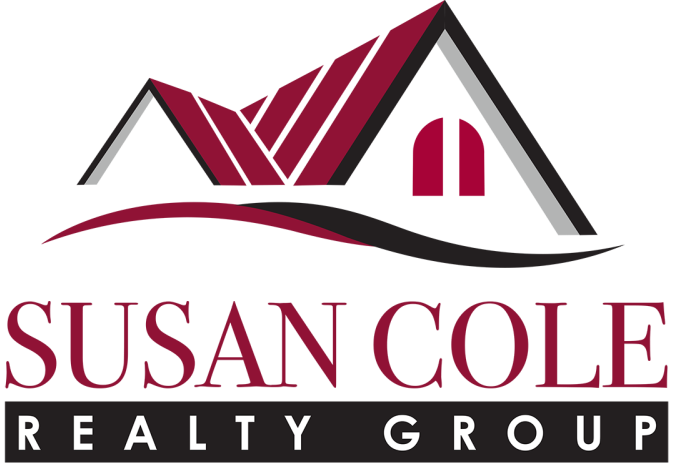
Selling land can be a rewarding financial decision, whether you’re capitalizing on an investment, liquidating an inherited property, or selling a long-held family parcel. However, unlike selling a home, selling land comes with unique legal complexities that can be overwhelming if you’re not properly prepared. Understanding property ownership, zoning laws, environmental regulations, and tax implications is essential to ensuring a smooth and successful transaction.
In this guide, we’ll explore the critical legal factors landowners in the Upper Valley of New Hampshire and Vermont should consider before listing their property. By partnering with an experienced real estate professional, you can navigate these complexities with ease and confidence.
1. Confirming Ownership and Clearing the Title
Before selling, it’s crucial to verify that you have legal ownership of the land and that there are no title issues that could disrupt the transaction. Over the years, land can change hands multiple times, leading to potential complications such as unclear boundaries, unresolved liens, or disputes over ownership.
Steps to Take:
- Conduct a Title Search: A thorough title search helps uncover any outstanding claims, including unpaid property taxes, unresolved mortgages, or liens that must be settled before the sale can proceed.
- Verify Inherited Property Ownership: If you’ve inherited the land, confirm that it has gone through probate and that the title has been legally transferred to your name.
How We Help: We work with title professionals to ensure clear ownership and resolve any title-related issues that could delay your sale. If a problem arises, we help facilitate solutions to keep your transaction on track. We have a recommendations list that we provide to all of our clients to be able to use as a resource.
2. Understanding Zoning Laws and Land Use Restrictions
Every parcel of land is subject to zoning laws that dictate how it can be used. Whether your property is designated for residential, commercial, agricultural, or industrial purposes, these regulations directly impact its marketability and potential buyers’ options.
What You Should Do:
- Review Local Zoning Regulations: Your local zoning office or municipal planning department can provide details on permitted uses and any restrictions or permits required for development. For example, did you know that Kane in New Hampshire has no zoning requirements? Or town like enfield New Hampshire may have much different requirements even though they are adjacent towns.
- Check for Covenants or Easements: Some properties may be subject to covenants or easements that restrict how the land can be used. These limitations must be disclosed to buyers upfront.
How We Assist: We have in-depth knowledge of zoning regulations throughout the Upper Valley and can help you determine how these factors affect your property’s value and marketability. We provide guidance on how to position your land effectively for potential buyers.
3. Environmental Regulations and Considerations
If your land is near wetlands, conservation areas, or other environmentally sensitive locations, it may be subject to specific regulations. Additionally, if there is a possibility of contamination from prior industrial use or underground storage tanks, you may need to address these concerns before completing a sale.
Steps to Take:
- Research Local Environmental Laws: Check state and local regulations to determine if any environmental restrictions apply to your property.
- Consider an Environmental Assessment: If there’s any history of industrial use or other potential hazards, an environmental assessment may be necessary to identify contamination issues.
- Check the FEMA maps: you will want to know if your property is in a flood zone.
How We Simplify the Process: We assist sellers in understanding and addressing any environmental concerns that could impact the sale. If regulatory challenges arise, we help you navigate the process to find the right buyers while ensuring compliance with environmental laws.
4. Tax Implications and Capital Gains Considerations
Selling land can result in significant tax obligations, and proper planning can help you retain more of your profits. One of the most important factors to consider is capital gains tax, which applies to the profit earned from selling the property.
What to Consider:
- Capital Gains Tax Rates in New Hampshire and Vermont:
- New Hampshire: As of 2025, New Hampshire does not impose a state income tax on wages or capital gains. However, it does tax investment income, such as interest and dividends, at a flat rate of 3%. Notably, this tax is scheduled to be repealed on January 1, 2025, potentially eliminating state tax on investment income thereafter. theentrustgroup.com
- Vermont: Vermont taxes capital gains as ordinary income, with marginal rates reaching up to 8.75%. However, the state allows a Percentage Exclusion, permitting taxpayers to exclude up to 40% of their adjusted net capital gain from the sale of assets held for more than three years. This exclusion is capped at $350,000, meaning any gain above $875,000 will be taxed at standard income tax rates. tax.vermont.gov
- Federal Capital Gains Tax: Regardless of state, federal capital gains tax applies. For the 2025 tax year, long-term capital gains (on assets held over a year) are taxed at 0%, 15%, or 20%, depending on your taxable income and filing status. wsj.com+21031 Crowdfunding+2SmartAsset+2
- Inheritance Tax Rules: If you inherited the land, different tax rules may apply, including potential exemptions or stepped-up basis adjustments that could reduce your tax liability.
- Tax Deferral Options: If you’re reinvesting in another property, you may qualify for a 1031 exchange, allowing you to defer capital gains tax.
How We Support You:
We work with sellers to clarify tax implications and connect you with tax professionals who can help minimize your tax burden through strategic planning.
5. Legal Disclosures and Buyer Due Diligence
As a seller, you are legally required to disclose key details about your land, including any known disputes, environmental concerns, zoning restrictions, or financial encumbrances. Transparency in these matters not only protects you from legal issues down the line but also builds trust with potential buyers.
Your Responsibilities:
- Disclose Any Known Issues: Being upfront about any potential problems helps prevent legal disputes after the sale.
- Allow Buyers to Conduct Due Diligence: Buyers will typically investigate the property themselves, but providing clear information from the start can streamline the process and reduce delays.
Our Hassle-Free Approach: We help sellers gather and organize all necessary documentation to ensure buyers have the information they need, making the transaction as smooth as possible.
6. The Closing Process: What to Expect
Once you’ve accepted an offer, the closing process begins. This involves reviewing legal documents, finalizing the title transfer, and coordinating with attorneys, title companies, and local government offices.
Key Steps in Closing:
- Sign the Legal Documents: These include the deed, purchase agreement, and required disclosures.
- Address Closing Costs: Sellers may be responsible for certain costs, such as title insurance and recording fees, though these can often be negotiated.
- Receive Your Payment: Once all requirements are met, the proceeds from the sale will be disbursed to you.
How We Make Closing Simple: We work closely with all parties involved to ensure a seamless closing process. From coordinating paperwork to handling last-minute details, we make sure everything proceeds efficiently so you can finalize your sale with confidence.
Selling Land in the Upper Valley Doesn’t Have to Be Complicated
Selling land in the Upper Valley of New Hampshire and Vermont can be a smooth and profitable process when you have the right knowledge and support. By understanding your legal responsibilities and working with experienced professionals, you can ensure a successful sale with minimal stress.
If you’re thinking about selling your land and want expert guidance, contact us today at (603) 443-3149 to learn more about how we can help. Let’s turn your property into a profitable and enjoyable sale!


